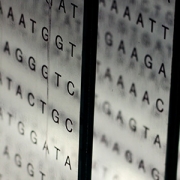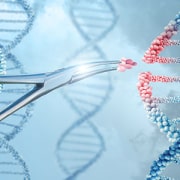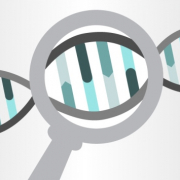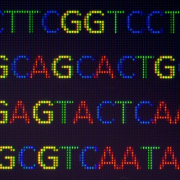Precision medicine: what is it and how will it be achieved?
Sir Bruce Keogh recently confirmed the NHS’s commitment to moving away from a one-size-fits-all approach towards a future of precision medicine. But how do we get there?
The first glimpse of a new strategy dedicated to getting the NHS ready to deliver precision medicine has been revealed. The proposed personalised medicine service will seek to deliver better disease prediction and prevention, more precise diagnosis, and more tailored interventions alongside greater patient participation.
Precision medicine: what is it?
Precision (or personalised) medicine is defined as the application of emergent technologies to better manage patients’ health and to target therapies to achieve the best outcomes in the management of a patient’s disease or predisposition to disease. Used properly, precision medicine should both improve patient outcomes and deliver benefits to the health service – including reducing the cost of ineffective treatment and multiple tests.
Various technologies and approaches will be integral to the success of personalised medicine: new diagnostic and molecular pathology tests will need to be devised, real-time monitoring of conditions will be required, and the integration and analysis of health information and data will be crucial.
Precision medicine: beyond 100,000 genomes
Sir Bruce Keogh’s strategy notes that the focus needs to move beyond the 100,000 Genomes Project, with a focus on permanently embedding genomics in care, stating: “To ensure we capitalise on the current NHS transformation and the investment made by both NHS England and the NHS, there is a need to locate this initiative within a broader and more expansive strategy for personalised medicine.”
It will come as no surprise that genomics underpins much (if by no means all) of personalised medicine; understanding and being able to predict an individual’s capacity to respond to different types of medicine based on their genome (pharmacogenomics) has broad and obvious relevance, as has the possibility of increasingly precise diagnosis and characterisation of rare and infectious diseases and cancers. Genomics can also contribute to disease prevention through better risk prediction and earlier diagnosis.
Precision medicine: making the most of data
The re-organisation of the Regional Genetic Laboratories will help the health service realise proposed efficiency savings. The new, fully interconnected system of laboratory services with consistent access across the country will be important for genomics as well as for other diagnostic services such as pathology and imaging; and it should, alongside the 100,000 Genomes Project, generate valuable information quickly and efficiently.
In order to make best use of this system, the information produced must be integrated with other clinical data so that health professionals can access a comprehensive analysis of a patient’s condition to inform management. The health service is considering using cutting-edge technologies such as artificial intelligence and machine learning to meet this need.
Efforts to address another data challenge – that of clinical interpretation of genome sequences – are ongoing, as Genomics England partners with bioinformatics companies to unravel patient genomes. The GENE Consortium, a collaborative industry partnership programme, is working with Genomics England to accelerate the development of new diagnostic tests and treatments; and a new partnership with Australia’s famous Garvan Institute aims to share data and findings in order to rapidly advance personalised medicine in both countries.
To find out more about genomics and what it means for healthcare, take a look at our introductory short genomics courses.
–









